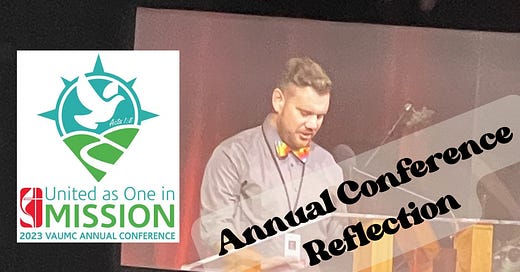Virginia United Methodist Conference Reflection
It Has Been A Journey
In 2019 The United Methodist Church doubled down on how it would treat people of LGBTQIA+ identity. Not only would they continue to fuel hate-filled rhetoric towards this community, but they would also double down on punishing many who sought to create a truly loving space for them as well.
Mere weeks before these decisions were mad…
Keep reading with a 7-day free trial
Subscribe to The RunninRev to keep reading this post and get 7 days of free access to the full post archives.




